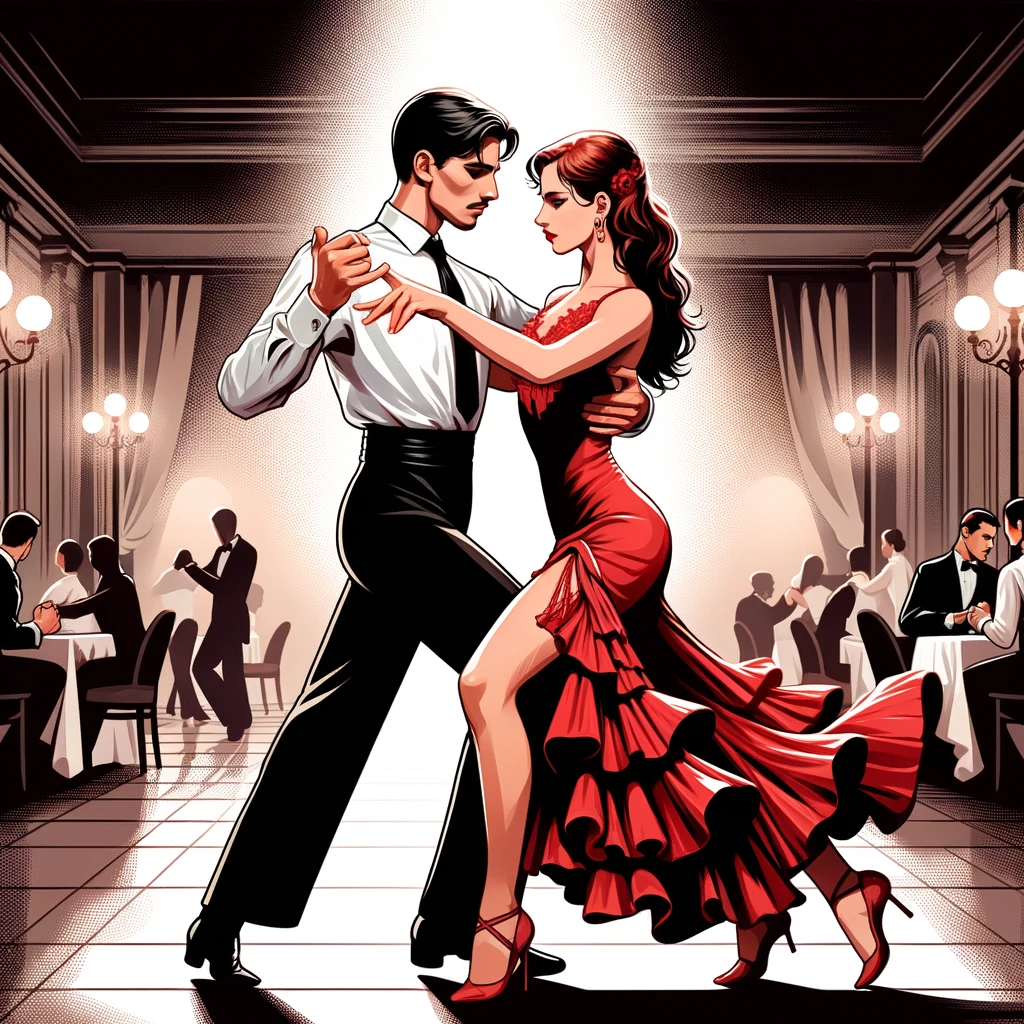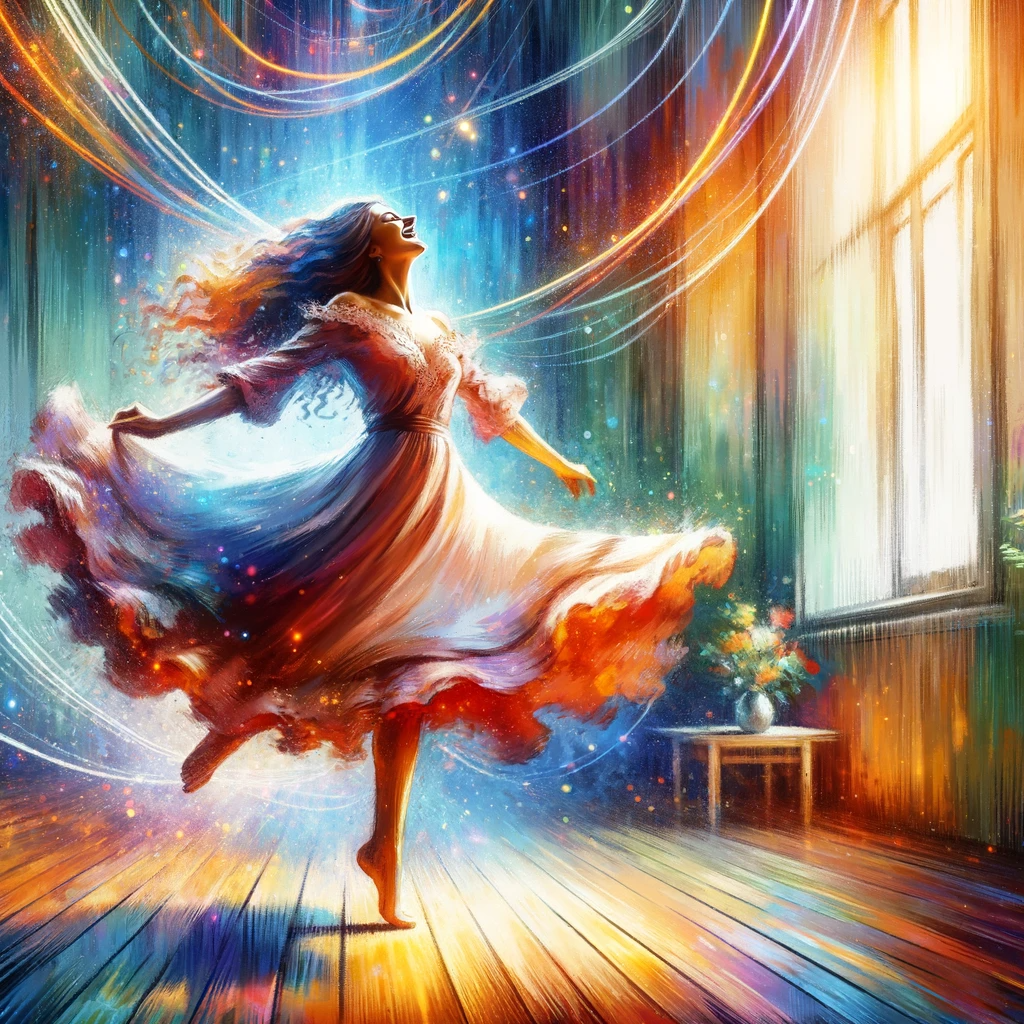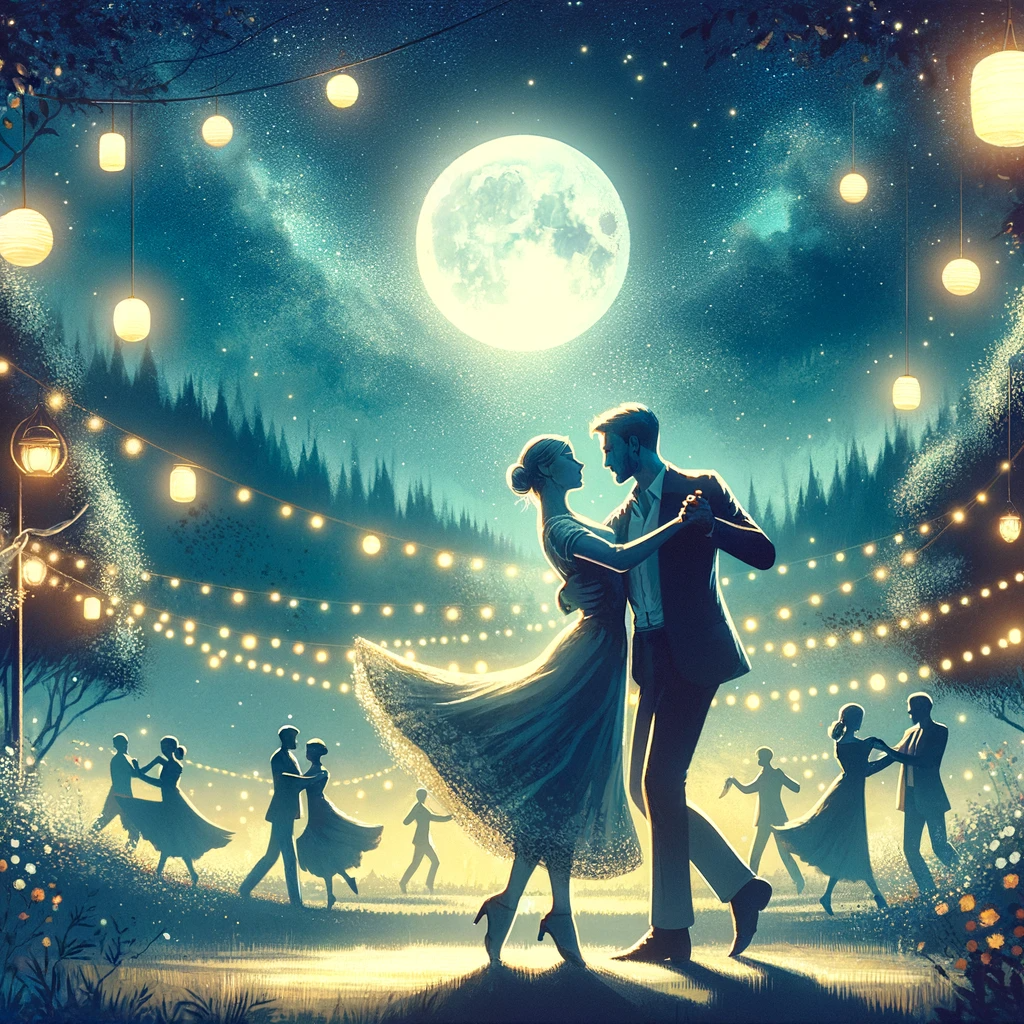Dance
Definition
Dance is a noun and verb that refers to a rhythmic and expressive movement of the body, usually to music, often as part of a performance, social gathering, or ritual. As a verb, it means to move rhythmically to music or in a structured pattern, expressing emotion or cultural identity.
Parts of Speech
- Noun
- Verb
Pronunciation
American English
- IPA Pronunciation: /dæns/ or /dɑːns/
- Respelling: DANS or DAHNS
British English
- IPA Pronunciation: /dɑːns/
- Respelling: DAHNS
Etymology
The word "dance" originates from the Old French "dancier," meaning "to dance," which is of uncertain origin. It entered English in the Middle Ages and evolved to refer to various forms of rhythmic movement, often in social or ceremonial contexts.
Derivatives
- Dancer (noun)
- Dancing (noun/verb)
- Danceable (adjective)
- Undanceable (adjective)
- Dancefloor (noun)
Synonyms
- Movement
- Ballet
- Choreography
Antonyms
- Stillness
- Immobility
- None
Usage
The term "dance" is widely used to describe various rhythmic movements, whether as a form of art, exercise, or celebration, as in "They performed a traditional folk dance." It is also commonly used to describe social events with music, like "We went to the dance last night."
Related Terms
- Rhythm: A strong, regular, repeated pattern of movement or sound.
- Music: A form of art that combines vocal or instrumental sounds to create a composition.
- Performance: An act of presenting a play, concert, or other form of entertainment to an audience.
Detailed Definitions
Verb
- To move rhythmically to music, typically following set steps or patterns: Describes the action of engaging in dance movements.
- Example: "She loves to dance to her favorite songs."
- To participate in a dance as a form of social activity or expression: Refers to taking part in a social dance event or expressing oneself through dance.
- Example: "They danced all night at the party."
Noun
- A series of rhythmic steps and movements, usually to music: Refers to a form of expression or performance involving movement.
- Example: "The tango is a popular dance in Argentina."
- A social event where people move rhythmically to music: Refers to gatherings or parties with music where people engage in dancing.
- Example: "The school hosted a spring dance for the students."
dance



🇨🇳 Mandarin (Simplified Chinese)
- 舞蹈 (dance)
- IPA: /wǔ dǎo/
- Respelling: wǔ dǎo
🇮🇳 Hindi
- नृत्य (dance)
- IPA: /nr̩.tja/
- Respelling: nritya
- डांस (dance in a colloquial setting, borrowed from English)
- IPA: /daːns/
- Respelling: daans
🇪🇸 Spanish
- baile (dance)
- IPA: /ˈbaj.le/
- Respelling: bahy-le
🇫🇷 French
- danse (dance)
- IPA: /dɑ̃s/
- Respelling: dans
🇸🇦 Modern Standard Arabic
- رقص (dance)
- IPA: /raqs/
- Respelling: raqs
🇧🇩 Bengali
- নৃত্য (dance)
- IPA: /nritjo/
- Respelling: nrityo
🇷🇺 Russian
- танец (dance)
- IPA: /tanʲets/
- Respelling: tanyets
- пляска (folkdance, ethnic dance)
- IPA: /plʲasːka/
- Respelling: plyasska
🇵🇹 Portuguese
- dança (dance)
- IPA: /ˈdɐ̃sə/
- Respelling: dãn-sa
🇮🇩 Indonesian
- tarian (dance)
- IPA: /taˈrian/
- Respelling: tari-an
🇩🇪 German
- Tanz (dance)
- IPA: /tant͡s/
- Respelling: tants
🇯🇵 Japanese
- ダンス (dance, borrowed from English)
- IPA: /dansu/
- Respelling: dansu
- 踊り (traditional dance)
- IPA: /odoɾi/
- Respelling: odori
🇻🇳 Vietnamese
- điệu nhảy (dance)
- IPA: /ziə̯w˧˩ ɲaːj˧˧/
- Respelling: zieu nhay
🇰🇷 Korean
- 춤 (dance)
- IPA: /t͡ɕʰum/
- Respelling: chum
🇹🇷 Turkish
- dans (dance, borrowed from French)
- IPA: /dans/
- Respelling: dans
- oyun (traditional dance)
- IPA: /ojun/
- Respelling: o-yun
🇵🇰 Urdu
- رقص (dance)
- IPA: /raqs/
- Respelling: raqs
- ناچ (colloquial dance)
- IPA: /naːt͡ʃ/
- Respelling: naach





